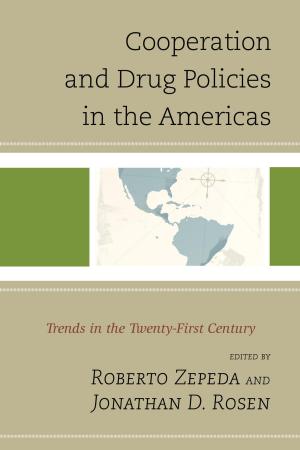Education, Social Progress, and Marginalized Children in Sub-Saharan Africa
Historical Antecedents and Contemporary Challenges
Nonfiction, Social & Cultural Studies, Political Science| Author: | Obed Mfum-Mensah | ISBN: | 9781498545709 |
| Publisher: | Lexington Books | Publication: | May 4, 2017 |
| Imprint: | Lexington Books | Language: | English |
| Author: | Obed Mfum-Mensah |
| ISBN: | 9781498545709 |
| Publisher: | Lexington Books |
| Publication: | May 4, 2017 |
| Imprint: | Lexington Books |
| Language: | English |
This book employs sociohistorical, narrative, and discourse frameworks to discuss the sociopolitical complexities and ambiguities of educating marginalized groups in sub-Saharan Africa since western education was introduced in the region. It outlines the systemic and structural challenges faced by marginalized children in the education system that prevent them from fully participating in the education process. This book focuses on how the props underlying Christian missionary education, colonial education, and early postcolonial educational enterprise all served to marginalize certain groups, including women, some geographical regions and/or communities, such as Islamic communities and people with disabilities, from the colonial and postcolonial economic discourses. This historical background provides the springboard for discussions on the complexities and ambiguities of educating marginalized groups in some communities in sub-Saharan Africa in the contemporary times. This book also highlights the challenges of the recent policies of policy makers and the strategies and initiatives of civic societies, non-governmental organizations, and local communities to promote marginalized children’s participation in education. This book elucidates the varied ways certain groups and communities continue to interrogate the structural and systemic challenges that marginalize them educationally. It argues that the level of marginalized groups’ participation in education in sub-Saharan African in the 21st century will determine the progress the region will make in the Education for All (EFA) initiative and the Millennium Development Goals (MDG). Furthermore, it argues that increasing educational participation in marginalized communities requires implementation of educational programs that address marginalized groups’ structural social arrangements and socioeconomic contexts.
This book employs sociohistorical, narrative, and discourse frameworks to discuss the sociopolitical complexities and ambiguities of educating marginalized groups in sub-Saharan Africa since western education was introduced in the region. It outlines the systemic and structural challenges faced by marginalized children in the education system that prevent them from fully participating in the education process. This book focuses on how the props underlying Christian missionary education, colonial education, and early postcolonial educational enterprise all served to marginalize certain groups, including women, some geographical regions and/or communities, such as Islamic communities and people with disabilities, from the colonial and postcolonial economic discourses. This historical background provides the springboard for discussions on the complexities and ambiguities of educating marginalized groups in some communities in sub-Saharan Africa in the contemporary times. This book also highlights the challenges of the recent policies of policy makers and the strategies and initiatives of civic societies, non-governmental organizations, and local communities to promote marginalized children’s participation in education. This book elucidates the varied ways certain groups and communities continue to interrogate the structural and systemic challenges that marginalize them educationally. It argues that the level of marginalized groups’ participation in education in sub-Saharan African in the 21st century will determine the progress the region will make in the Education for All (EFA) initiative and the Millennium Development Goals (MDG). Furthermore, it argues that increasing educational participation in marginalized communities requires implementation of educational programs that address marginalized groups’ structural social arrangements and socioeconomic contexts.















